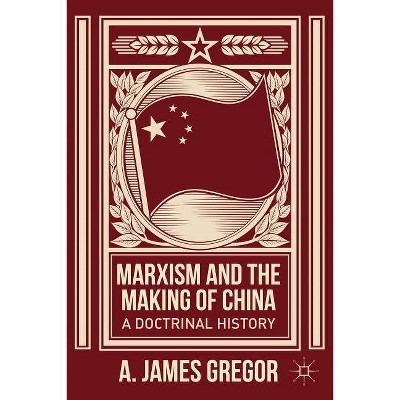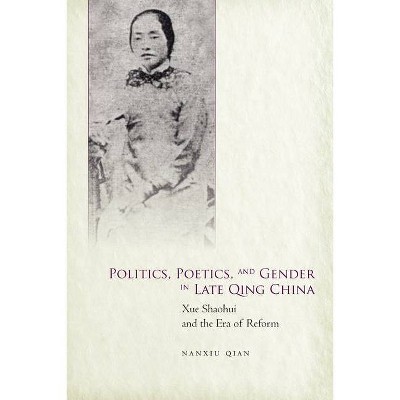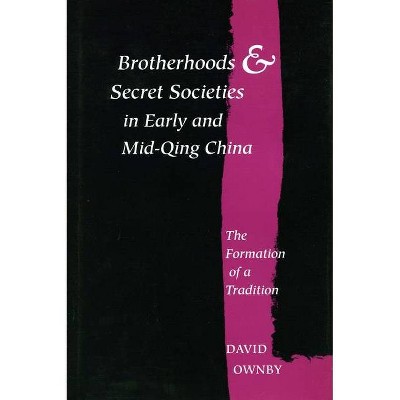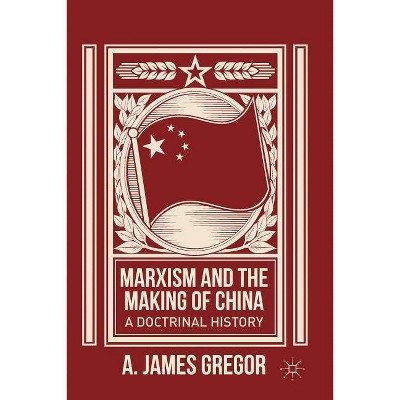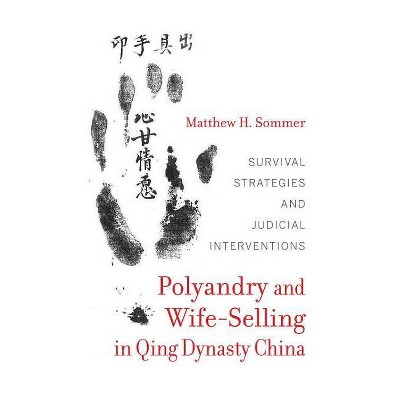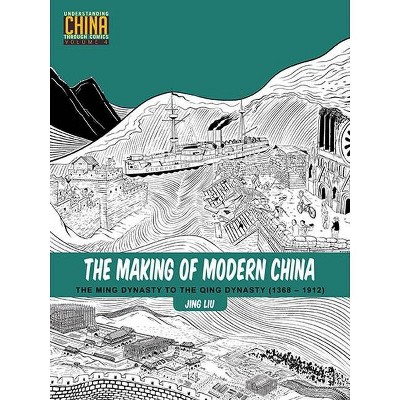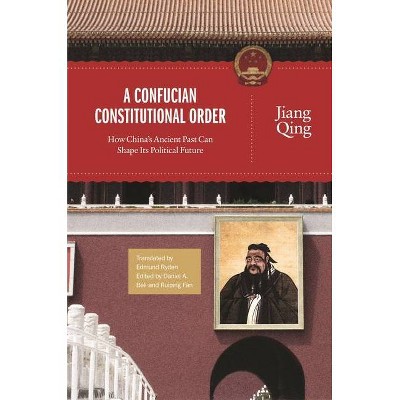The Board of Rites and the Making of Qing China - by Macabe Keliher (Hardcover)
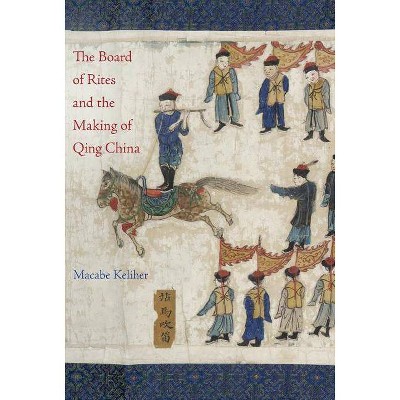
Similar Products
Products of same category from the store
AllProduct info
<p/><br></br><p><b> About the Book </b></p></br></br>"In 1631, Manchu state-makers set up an administrative apparatus that included a ministry for implementing and legislating rites and rituals, the Board of Li, or the Board of Rites. Over the next sixty years the Board of Li helped develop the rules and regulations of the Manchu state, which were codified in an administrative code in 1690. This book looks at the role of li (ritual) and the Board of Li in early Manchu state-making efforts. More than simply rituals and ceremonies, as often assumed, li was intimately tied to the formation of politics and administration. Macabe Keliher argues that culture and society are mutually formed, each constructed simultaneously by actors in order to organize themselves politically and to orient themselves ontologically, resulting in the emergence of different administrative and institutional forms, not only in Chinese history but also across the Eurasian continent. This new major approach to the formation of the Qing empire moves beyond traditional understandings of war and bureaucracy and state-making to reshape our understanding of this period of Chinese history"--<p/><br></br><p><b> Book Synopsis </b></p></br></br><i>The Board of Rites and the Making of Qing China</i> presents a major new approach in research on the formation of the Qing empire (1636-1912) in early modern China. Focusing on the symbolic practices that structured domination and legitimized authority, the book challenges traditional understandings of state-formation, and argues that in addition to war making and institution building, the disciplining of diverse political actors, and the construction of political order through symbolic acts were essential undertakings in the making of the Qing state. Beginning in 1631 with the establishment of the key disciplinary organization, the Board of Rites, and culminating with the publication of the first administrative code in 1690, Keliher shows that the Qing political environment was premised on sets of intertwined relationships constantly performed through acts such as the New Year's Day ceremony, greeting rites, and sumptuary regulations, or what was referred to as li in Chinese. Drawing on Chinese- and Manchu-language archival sources, this book is the first to demonstrate how Qing state-makers drew on existing practices and made up new ones to reimagine political culture and construct a system of domination that lay the basis for empire. <br><p/><br></br><p><b> From the Back Cover </b></p></br></br>"This is an inspired work of institutional history that is likely to alter how Chinese and foreign scholars have understood late imperial China. By way of close readings of archival Manchu sources, Keliher has produced an astonishingly well-documented study that demonstrates the distinctive administrative inventions of the Qing and elevates the Manchu legacy to its proper place as the maker of modern China as we know it."--Lionel M. Jensen, Faculty Fellow at the Liu Institute for Asia and Asian Studies, University of Notre Dame <p/> "Keliher's remarkable monograph has much to offer early modernists working on state/empire formation, institution-building, and ceremonial and ritual. While paying full attention to the specificities and intricacies of Qing rituals, Keliher convincingly invites us to rethink the ways in which political and social power was constructed and deployed in early modern Eurasia."--Kaya Sahin, Associate Professor of History, Indiana University <p/> "By analyzing the creation of the Qing Board of Rites during the seventeenth-century Manchu conquest, Keliher persuasively argues for the importance of ritual symbolism in the legitimation of China's last dynasty and enriches our understanding of this facet of Qing state formation."--Evelyn S. Rawski, Distinguished University Professor Emerita of History, University of Pittsburgh <br><p/><br></br><p><b> Review Quotes </b></p></br></br><br>"By taking seriously his protagonists' preoccupation with li/doro/ritual as recorded in the historical sources, Macabe Keliher has produced an enriching and important work of scholarship that may be appreciated on a number of levels. . . . Specialists in Qing and Chinese history as well as those interested in ritual and the comparative history of dynastic states and imperial formations should find it especially appealing and worthy of a place on their reading lists and bookshelves."-- "Journal of Chinese History"<br><br><p>"For historians of the Qing dynasty . . . this is one of those wonderful books that says something that the moment you read it you know is completely obvious but somehow no one has seen before."</p>-- "English Historical Review"<br><br>"The book exists in an intersecting zone of institutional, political, and legal histories of Imperial China while dealing with various primary sources in Manchu and classical Chinese. As he concludes his book while locating the specific Qing institutional history in world history, it will also provide a useful backdrop not only for historians of Imperial China but also for researchers conducting comparative studies of the political system of East Asia."-- "Journal of East Asian Studies"<br><br>"[Keliher] has produced an extremely valuable and well-balanced work that will stand the test of time."-- "China Review International"<br><p/><br></br><p><b> About the Author </b></p></br></br><b>Macabe Keliher </b>is Assistant Professor of History at Southern Methodist University.
Price History
Cheapest price in the interval: 70.99 on November 8, 2021
Most expensive price in the interval: 70.99 on December 20, 2021
Price Archive shows prices from various stores, lets you see history and find the cheapest. There is no actual sale on the website. For all support, inquiry and suggestion messages communication@pricearchive.us
